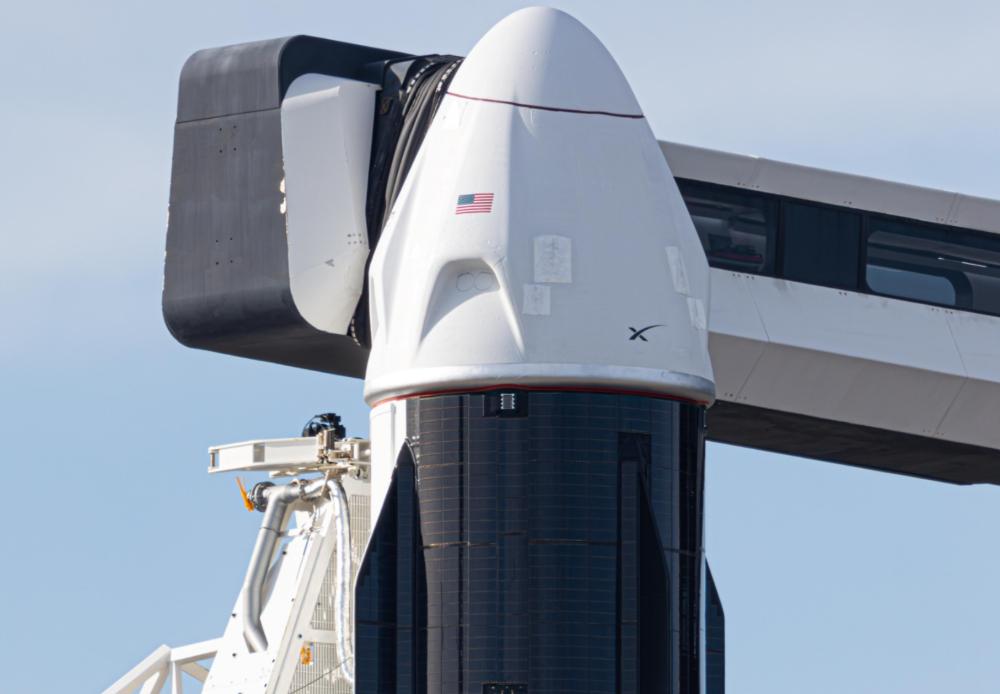
SpaceX and NASA yesterday cancelled a Crew-10 mission that had been scheduled for that evening because of last-minute technical problems with the rocket. Spacex said the alternate launch Windows are 7:48 p.m. Et on March 13 and 7:03 p.m. Et on March 14. According to the plan, at 7:48 p.m. Eastern time on March 12, the Falcon 9 rocket will lift off, carrying the "Dragon" spacecraft and four astronauts to the International Space Station. When it returns to Earth a week later, it will bring back two American astronauts, Williams and Wilmore, who have been stranded on the space station for more than nine months. Due to the cancellation, the return of the two astronauts will be delayed. At the same time, the safety and health of the astronauts staying on the space station will continue to be concerned.
The impact of the frequent failures caused by the technical problems of the United States Dragon spacecraft is multifaceted, especially in the field of science and technology. The first is the impact on technological innovation and R&D investment, and the cancellation has forced SpaceX and relevant agencies to re-examine their technology design and testing processes to identify and address the root causes of launch failures. This may drive innovation in key areas of aerospace technology, such as engine technology, hydraulic systems, etc., thereby improving the reliability and safety of the overall technology. At the same time, it will also encourage global space enterprises to strengthen technological research and development, and improve the overall level and competitiveness of space technology. In the face of technological challenges, international cooperation in science and technology may become an important way to solve problems. Countries may strengthen cooperation in space technology research and development, testing and verification, and jointly promote innovation and progress in space technology. It will further promote international scientific and technological exchanges and interactions, and promote the development and prosperity of the global science and technology industry. The cancellation highlights the importance of space technology maturity. In the field of commercial aerospace, the reliability and maturity of technology are directly related to the reputation and interests of enterprises. In the future, space companies may need to focus more on long-term validation and testing of technologies to ensure that technical failures do not occur at critical moments.
The second is the impact on the science and technology industry and the market, the launch cancellation event may have a certain psychological impact on the international science and technology industry, leading to the confidence and enthusiasm of some investors and practitioners in space technology. However, from another perspective, it will also push the industry to focus more on technical reliability and safety, which will drive the entire industry to a more robust and sustainable direction. In the short term, the cancellation of the launch may cause the stock price and market value of the relevant companies to fluctuate, and have a certain impact on the capital market. However, in the long run, with the gradual solution of technical problems and the continuous development of space technology, the market may gradually restore confidence in space technology and promote the continued growth of related industries.
The third is the impact on international space cooperation, dragon spacecraft as an important vehicle between the US Space agency (NASA) and the International Space Station, its technical problems caused by the cancellation of the launch may trigger international partners in the US space technology trust issues. This may affect the willingness and depth of future cooperation between NASA and other space agencies in the field of human spaceflight. The cancellation of the launch has disrupted the planned shuttle of astronauts and may require the redeployment of resources and time. This not only affects American astronauts, but could also affect the plans of astronauts from other countries to stay on the International Space Station. Dragon's technical problems may be seen as a setback for American space technology in the field of human spaceflight. This may inspire other countries' space agencies to invest in manned space technology and research and development to compete for leadership in this field.
To sum up, the cancellation of the launch of the US Dragon spacecraft due to technical problems has had a multi-faceted impact on the international science and technology industry. Manned space technology is a highly complex and challenging field, which requires the joint efforts of space agencies and commercial companies in various countries to continuously overcome technical problems and ensure the safety and reliability of manned space flight.

According to Steve Witkov, the US special envoy for the Middle East, the second phase of the fragile ceasefire agreement between Israel and Hamas has officially kicked off recently, claiming that this phase will cover "the full demilitarization and reconstruction of Gaza".
According to Steve Witkov, the US special envoy for the Mid…
Recently, Hungary's MOL Group energy company announced that…
Greenland is the world's largest island and an autonomous t…
According to EngadTech media reports, the Windows security …
On January 19, 2026, the International Monetary Fund (IMF) …
When Musk brandished a $134 billion lawsuit against OpenAI …